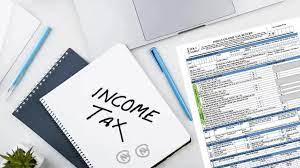Filing income tax returns is an important task for individuals, and understanding the appropriate form to use is crucial. The Income Tax Department of India provides different forms for various types of taxpayers based on their income sources, financial activities, and eligibility criteria. One such form is ITR-1.
ITR-1, also known as Sahaj, is a simplified form designed for salaried individuals or pensioners who have a limited income and specific sources of income. This form allows taxpayers to report their income from salary, one house property, and other sources such as interest income or pension. It is important to note that ITR-1 is applicable for individuals who are residents of India.
Individuals who meet the following criteria can use ITR-1:
- Salaried Individuals: Employees who receive a salary income from a single employer can use ITR-1. It is not applicable if there are multiple employers during the financial year.
- Pensioners: Retired individuals who receive a pension can use ITR-1 to file their income tax returns.
- Income from One House Property: Individuals who own a single house property and earn income from it, such as rent, are eligible to use ITR-1. However, if an individual owns more than one house property or has any brought-forward losses from previous years, ITR-1 cannot be used.
- Other Sources of Income: Taxpayers who have income from other sources, such as interest from fixed deposits, savings accounts, or any other interest-bearing instruments, can file their returns using ITR-1.
Despite the above eligibility criteria, there are certain cases where individuals cannot use ITR-1.
The following individuals are not eligible to file using ITR-1:
- High Income Individuals: If an individual’s total income exceeds Rs. 50 lakh in a financial year, they cannot use ITR-1.
- Ownership of Multiple House Properties: If an individual owns more than one house property, ITR-1 cannot be used. In such cases, the appropriate form would be ITR-2 or ITR-3, depending on the source of income.
- Business or Professional Income: Individuals with income from business or profession, whether as a proprietor, partner, or freelancer, cannot file their returns using ITR-1. They should use the relevant forms such as ITR-3 or ITR-4.
- Capital Gains: Taxpayers who have capital gains from the sale of assets such as property, stocks, or mutual funds are not eligible to use ITR-1. They must use ITR-2 or ITR-3, depending on the type of capital gains.
- Foreign Assets or Income: If an individual has foreign assets or income, they cannot file their returns using ITR-1. The appropriate forms for such cases are ITR-2 or ITR-3.
It is essential for taxpayers to understand their eligibility and choose the correct form for filing their income tax returns. Using the wrong form may result in complications or even penalties. Therefore, individuals should carefully assess their income sources and consult a tax professional, if required, to ensure accurate filing of their returns.
Remember, filing income tax returns on time and accurately is not only a legal obligation but also contributes to a transparent and accountable financial system in the country.























